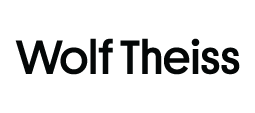Changes to the Croatian Labor Act, governing work for digital platforms, took effect on January 1, 2024. Croatia opted to regulate platform work before the formal adoption of the EU Platform Work Directive. What are the main novelties?
Work organization
Digital working platforms (e.g., companies offering services through mobile apps for transport or food delivery) and aggregators (intermediaries connecting such platforms with workers performing work through them) are obliged to:
- inform platform workers of the work organization and decision-making processes;
- ensure transparency of data on performed work;
- appoint individuals responsible for security and workload of platform workers and review automatically rendered decisions (e.g., decisions on access to work tasks and working hours); and
- comply with specific personal data processing requirements (e.g., not process data concerning private calls or the emotional state of workers).
Formalities
- Digital working platforms and aggregators must register with the relevant public register;
- Employment agreements with the platform workers should include specified details (e.g., how work is assigned, how performance is measured).
Liability
- In general, digital working platforms and aggregators are jointly and severally liable for salary payment to platform workers (release from such liability is possible if certain statutory requirements are met).
- Since digital working platforms and aggregators often engage independent contractors for performance of work, the criteria for reclassification of independent contractors as platform workers have now been statutorily defined (e.g. personal work performance, subordination, possibility of refusing work tasks, determination of work time and place, supervision and performance measurement, non-compete obligations).
If you are an employer in the digital platform industry, take a close look at the relevant statutory changes to ensure compliance and avoid fines ranging up to approx. EUR 13,000 for companies and EUR 1,500 for the responsible person within the company.
By Dora Gazi Kovacevic and Berislav Draskovic, Attorneys at Law, Wolf Theiss


